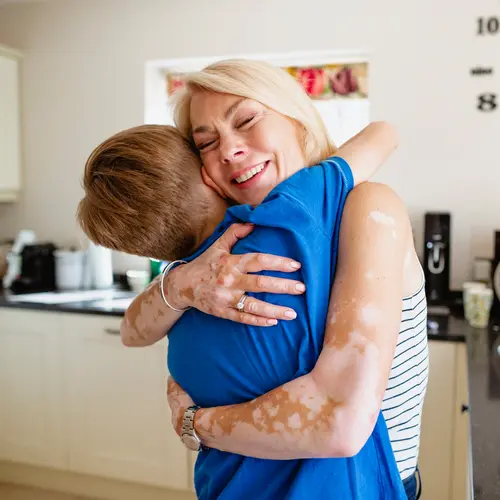There are many ways to keep rosacea under control. Though rosacea can't be cured, treatment can help you control symptoms and prevent them from getting worse. Some things you can do on your own, like avoiding triggers. Other methods include skin creams, medication, and laser treatments.
Avoiding Your Rosacea Triggers
To keep rosacea under control, learn what your triggers are. Use a symptom diary to keep track.
When you find a pattern to your rosacea flare-ups, changing habits and lifestyle can prevent problems.
Rosacea Medications and Skin Treatments
Your treatment will depend on the type of rosacea you have. Most of these creams and oral medications help the most in people with papulopustular rosacea. That's where symptoms include small pimples, facial flushing, and tiny red lines on the cheeks.
These treatments may still be used in people with other types of rosacea, but they may not help as much. And even if they work and symptoms go away, you might keep taking it to stop further flare-ups. Your doctor may also combine a few drugs or creams.
Antibiotics are a common rosacea treatment, but not because bacteria cause rosacea. Instead, antibiotics may help by easing swelling and inflammation and relieving the pimple-like skin problems you may have.
Rosacea Treatment Options
Creams and Gels
Your doctor might start treatment with a prescription cream or gel you use on your face once or twice a day. These include:
- Azelaic acid (Azelex and Finacea)
- Brimonidine (Mirvaso)
- Clindamycin (Cleocin and ClindaMax)
- Erythromycin (Erygel)
- Ivermectin (Soolantra)
- Metronidazole (MetroCream or MetroGel)
- Sodium sulfacetamide and sulfur (Clenia and Plexion)
- Tretinoin(Avita, Retin-A), a retinoid, is used in some hard-to-treat cases.
These treatments have side effects, like skin irritation. A few are not safe for women who are pregnant or planning to become pregnant. Talk to your doctor about any risks.
Antibiotic Pills
If your rosacea is more serious or doesn't respond to ointments, your doctor might suggest antibiotic pills, though you might keep using skin creams, too. Antibiotic pills may also be used if you have ocular rosacea.
Your doctor might try doxycycline (Vibramycin), erythromycin (ERYC), metronidazole (Flagyl), or minocycline (Dynacin).
Like any medicine, antibiotics can cause side effects. Treatment is typically long-term, often lasting at least 6 months.
Other Drugs
If these rosacea treatments don't work, your doctor may try other medicines, such as isotretinoin (Absorica, Amnesteem, Claravis, Myorisan, and Zenatane). But because of serious side effects, it's not used often.
Other Rosacea Treatments
You can treat dry eyes of ocular rosacea with liquid tears and cleaning your eyelids every day with warm water. You may need to see an eye doctor to prevent problems.
Laser treatments can help get rid of visible blood vessels and redness caused by rosacea.
Surgery or laser treatments may help people with rhinophyma, a rare form of rosacea that causes the nose to swell and deform.
The Psychological Effects of Rosacea
People who have rosacea may be embarrassed about how they look. Some avoid being around other people. And because of symptoms like a red nose and cheeks, people with rosacea are sometimes unjustly thought to be heavy drinkers.
If your symptoms are seriously affecting your mood and self-esteem, do something about it. Treatment for your rosacea symptoms is key. You could also ask your doctor about using makeup to hide affected patches of skin. If you're stressed or depressed, you might get help from counseling or medications. Never ignore signs of anxiety or depression. Talk to your doctor right away so that you can get help.

